For the past 20 years, Desiree Robinson has been the heart and soul of the Cozy Corner Restaurant. At 83 and “semi-retired,” she is the lynchpin that keeps the family business running. Known for their slow-cooked racks of ribs and immaculate service, the tiny establishment at North Parkway and Manassas has made a name for itself in a city filled with barbecue restaurants.
Desiree herself has also made waves. Earlier this year, she was inducted into the American Royal’s BBQ Hall of Fame, becoming the first African-American woman inducted. The national group, which inducts three new members a year, looks for those who “have made an outstanding impact on the world of barbecue.” The honor came as a surprise. She had never been inclined to push for any kind of recognition when it came to her work. For years she just tried to make Cozy Corner a place Memphians would love.
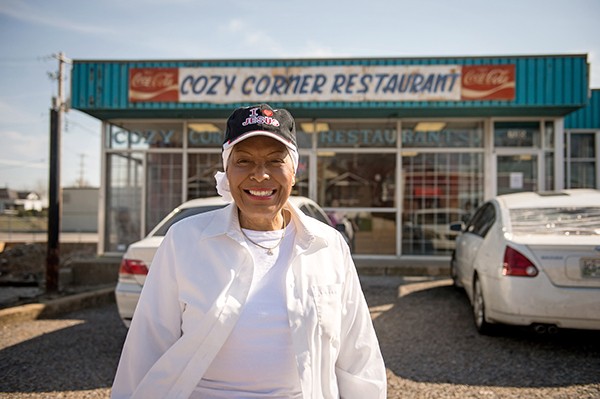 Brandon Dill
Brandon Dill
Cozy Corner owner and American Royal’s BBQ Hall of Fame inductee Desiree Robinson
“I almost passed out,” she says. “I just couldn’t believe it, because I never thought of us as more than a great mom-and-pop restaurant where people would come in and bring their children for good food. I never thought about anything like this. It never crossed my mind. I was just amazed when they started talking about me.”
Desiree and her family moved to Memphis when she was young in search of better opportunities. “My mom said I would be going to school in Memphis,” she says. “So, I was 4 or 5 when we moved from Mississippi into the city. I pretty much grew up at 1201 Tutwiler in Memphis.”
 Karen Focht
Karen Focht
The Cozy Corner Restaurant at North Parkway and Manassas
From an early age, Desiree found herself working in the kitchen with her grandmother and mother, making family dinners. For years she would spend time perfecting her craft and trying new recipes while gaining a love for cooking.
“When I was 8 years old, I was cooking dinner for the family,” she says. “It had to be on the table at 5 o’clock Monday through Thursday. Cooking, and cooking for my family, was something that was always important for me when I was growing up.”
Desiree went to Manassas High School, where she met her husband, Raymond. The two were an instant match. They were engaged before they left high school and moved to Denver after Raymond got a job at Martin Marietta, a building-materials firm.
The Robinsons settled down in Denver, starting a family and cooking for their co-workers and neighbors on the weekends. People would often comment on Raymond’s prowess behind the grill.
“Raymond was an awesome cook from day one,” she says. “Early in our marriage he sat me down one day and told me, ‘I love to cook!’ I remember smiling at him and telling him, ‘Okay then, I want to keep you happy.’ I didn’t do a lot of cooking. I’m an excellent cook, too, but I stepped back because he would enjoy himself so much when he was cooking. He would plan stuff out and always be testing new recipes. We had company almost every other day because people wanted to try his food.”
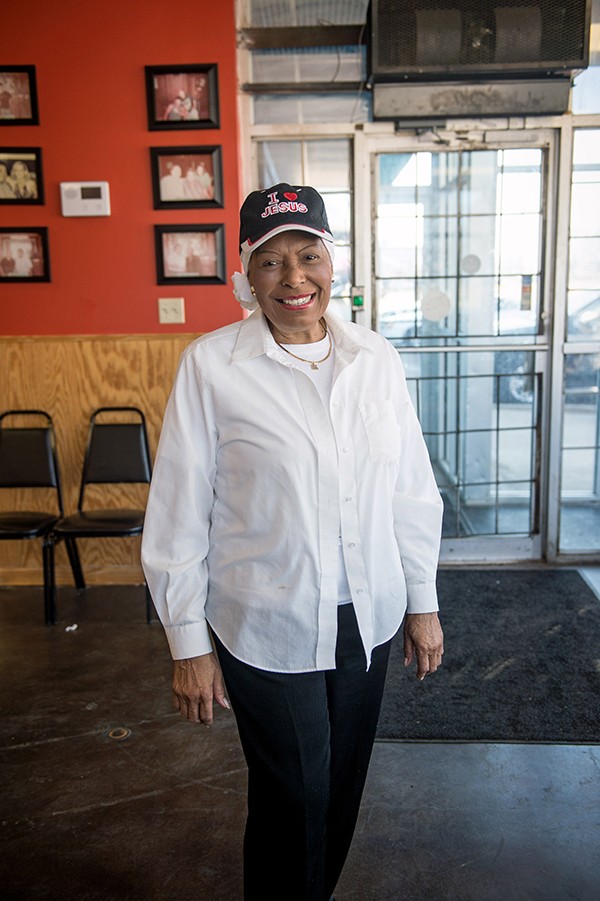 Brandon Dill
Brandon Dill
Desiree Robinson
It was the initial interest from friends and co-workers in Denver that led to the creation of their first restaurant, Ray’s Barbecue, in Denver. Though successful, the couple’s time in Denver was limited. Both Raymond and Desiree came from single-parent households and neither wanted their parents, who were still living in Memphis, to struggle.
“We never meant to stay in Colorado for as long as we did,” she says. “Raymond and I were both only children and we didn’t want other people taking care of our parents as they grew older. We said when we went out there we would only stay a couple of years, actually. It just so happened that I liked it very well and we were out there for eight years. When we came back to Memphis, it was because both Raymond and I felt like we needed to take care of our parents. We both liked Colorado, but we knew we had to come back home.”
When the duo returned to Memphis, Raymond found work doing odd jobs in the city while Desiree opted to stay home and raise their children. By the time their two children, Ray Robinson Jr. and Val Bradley, had begun high school, memories of their Denver restaurant had started to linger on their minds.
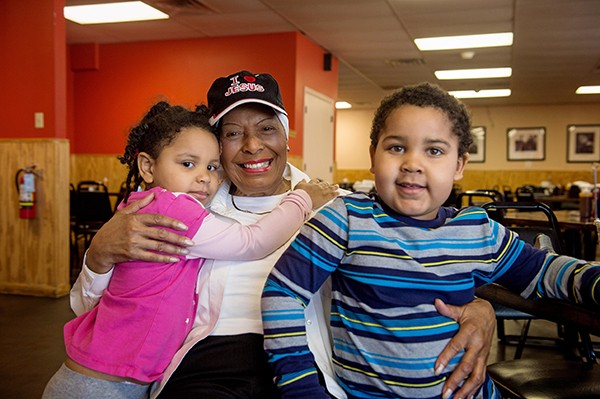 Brandon Dill
Brandon Dill
Desiree Robinson with her grandkids
“After Colorado, Raymond had been missing the restaurant business. One day he came to me and said, ‘I want to open another restaurant.’ We both were qualified to do it. I then remember him saying, ‘One of us is going to run the restaurant and the other one is going to have to get a job.’ It was funny because prior to this he had told me that he didn’t want me to work after our kids were born. He forgot all about them!”
In 1977, Desiree and Raymond opened the Cozy Corner. Despite her involvement in the initial opening, Desiree ended up taking a job at BellSouth. Through the years, she would work at Cozy Corner during the weekends but largely spent her time away from the restaurant.
“By the time the restaurant opened, the kids were teenagers and worked there more than I did! I went with BellSouth and worked there until I retired. I did work in the restaurant some, but for the most part, it was Raymond and the kids running the show. The kids would leave school and go straight to Cozy Corner.”
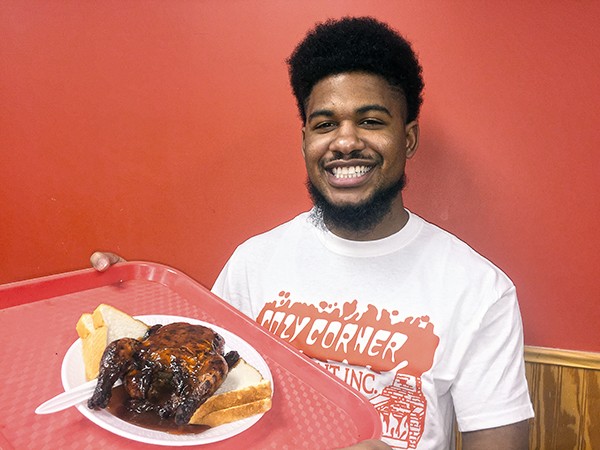 Michael Donahue
Michael Donahue
a barbecued Cornish hen
During the first few years of Cozy Corner, the Robinsons worked with a single barbecue pit and a limited menu. At the time, Raymond was also the only chef. Nonetheless, the quality of the food and service kept hungry Memphians coming back for more.
“When we first opened, Raymond ended up doing all of the cooking. In hindsight, he probably wanted to do all of the cooking. He could turn a plain meal into a fabulous meal in a minute after I put it on the table. We played off each other really well. Even though I wasn’t in the kitchen at the time, I learned from just hearing him talk about what he was doing.”
Raymond’s warm personality was a reason for Cozy Corner’s early success, bringing in a stream of regular customers. “I think it was good that Raymond was at the restaurant in the beginning because of his personality,” Desiree says. “He was one of the nicest people you will ever meet. We had known each other for a long time and were married for 43 years before he passed away. In all that time, there was not one person who didn’t like him. He was so nice to be around. There was no one he wouldn’t talk to, and don’t you dare look discouraged. He would talk you out of it. We were exact opposites! I learned a lot from just watching him interact with others. I think it rubbed off on me over the years.”
While Desiree worked at BellSouth, Raymond kept Cozy Corner growing. They added more menu items, another barbecue pit, and survived a fire that forced them out of their original restaurant and into a smaller location while they underwent repairs. Time and time again as challenges arose the Robinsons overcame struggles together.
When Raymond died suddenly in 2001, it was a shock for the entire family. As a whole, they were devastated and his death put the future of Cozy Corner in limbo. While the family was mourning the loss, one of the first questions Desiree remembered asking the family was, “How are we going to keep the business open?”
After deliberating for a few days, she decided to step into Raymond’s place and run the business.
“After he died, I went full-time at Cozy Corner. I wouldn’t have dreamed of doing it any other way. It was fun for everybody, and the customers were so glad they didn’t know what to do. Raymond had never met a person that didn’t like him, and he brought that energy to Cozy Corner every day. He was very likable, and I just wanted to keep that up.”
Desiree tried to maintain the small mom-and-pop feeling of the restaurant after Raymond’s death. Cozy Corner is a gathering ground for the Robinsons; four generations of the family now work in their kitchen. Her office in the back of the restaurant was converted to a nursery so that family members could still work in the restaurant with their young kids. Most of the staff in the restaurant are friends or family.
“It’s really a family thing,” she says. “We just added another one who’s only 8 months old, and we are trying to figure out how to get him in there. It’s a place where we can come together and laugh and enjoy life.”
Desiree can take credit for the continued success of Cozy Corner after Raymond’s death. She took the reins at the restaurant making sure that customers were shown the same attention and care that they had under Raymond’s ownership.
Under her leadership, Cozy Corner continued to make a name for itself in the local scene. It has won local and national awards and started making lists as a regional barbecue powerhouse. As Desiree pushed into her early 70s, she helped the restaurant expand its hours from closing at 5 p.m. to 9 p.m., a move that also expanded its popularity.
Today Desiree Robinson is still a regular around Cozy Corner but has passed much of the day-to-day business off to her grandkids. Though retired, she still makes her way down to the restaurant now and then to make sure that all of her guests feel like they are family.
“Come and eat with us,” she says, “and have the best food you’ve ever had with the best people you could ever meet.”
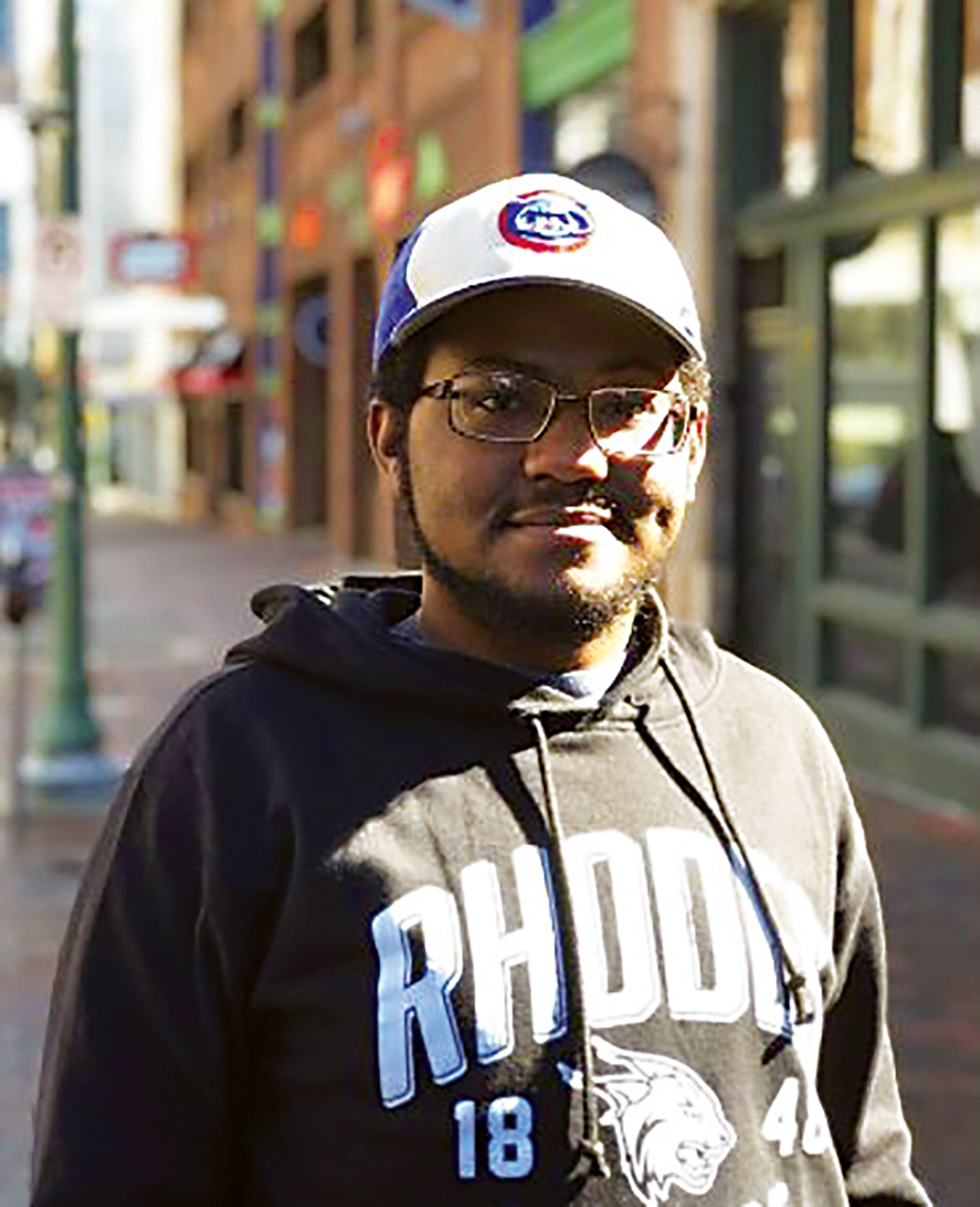

 Brandon Dill
Brandon Dill  Karen Focht
Karen Focht  Brandon Dill
Brandon Dill  Brandon Dill
Brandon Dill  Michael Donahue
Michael Donahue 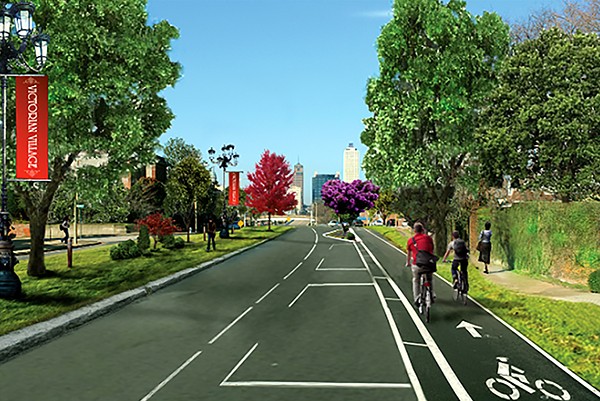 City of Memphis
City of Memphis